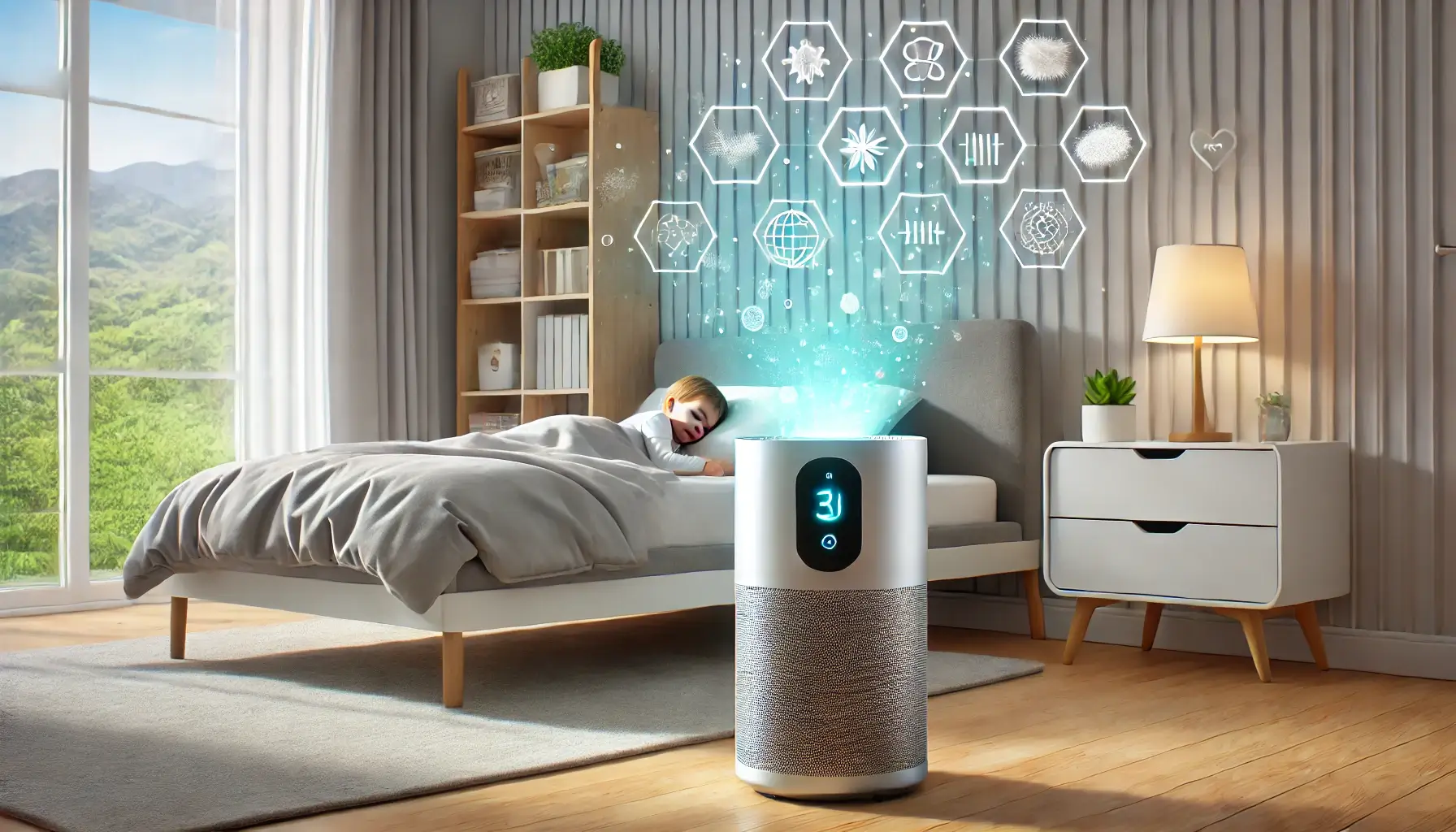Children Can Benefit from Using a High-Quality Air Purifier
Children’s lungs are still developing and more sensitive than those of adults, making them more susceptible to in the air. A high quality air purifiers can offer significant benefits to children in various ways.
Lower Risk of Being Exposed to Pollutants
A high-quality air purifier equipped with a HEPA air filter can effectively eliminate common airborne allergens such as dust, pollen, pet dander, and mold spores. This can greatly alleviate asthma and allergy symptoms in children.
Airborne Irritants
Air purifiers can help remove air borne irritants like smoke and dust mites, which can cause respiratory discomfort and even trigger asthma attacks in children.
Outdoor Pollution Control
While air purifiers cannot completely address outdoor air quality, they can minimize the amount of outdoor pollutants entering the home, such as wildfire smoke or vehicle fumes, especially when used with windows closed.
Enhancement of the Respiratory System
By reducing exposure to allergens and irritants, air purifiers can significantly improve a child’s respiratory health. This is particularly beneficial for children with asthma and allergies, leading to fewer episodes of coughing, wheezing, and congestion.
Better Sleep Quality
Cleaner air can improve sleep quality in children. Breathing in purer air helps them sleep more peacefully, waking up refreshed.
Long-Term Health Benefits
Reducing exposure to air pollutants during childhood can result in improved lung development and a lower chance of developing chronic respiratory diseases later in life.
What to Consider When Choosing an Air Purifier
When selecting an air purifier, look for models with HEPA filters, as they are highly efficient in capturing small particles. Ensure the purifier’s Clean Air Delivery Rate CADR is suitable for the room’s size where your child spends most of their time.
Maintenance is Key
To maintain optimal performance, replace air filters regularly following the manufacturer’s instructions. Air purifiers can significantly reduce respiratory issues, but they are not a substitute for proper allergy management or asthma control techniques. Consult your child’s healthcare provider for the best methods to manage their respiratory health.
Potential Downsides
Be aware that air purifiers are not perfect. Some may not remove germs or viruses, and those with ionizers can produce, which is harmful to the lungs. Select a purifier that does not produce ozone or has an option to disable the ionizer.
Conclusion
A high-quality air purifier can improve indoor air quality and potentially reduce respiratory issues in children. With the right choice and proper maintenance, air purifiers are a valuable tool in supporting your child’s health.

